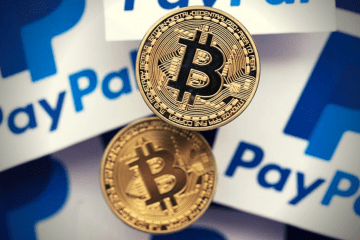Proponents of Ripple should not support the ‘Securities Clarity Act’
US Congressman Tom Emmer, known to be a proponent for blockchain technology and cryptocurrencies, presented the “Securities Clarity Act” in the middle of last week to provide the long-awaited legal clarity in the United States. The Securities Clarity Act introduces a new definition for the term “token”, which is to exist in the intermediate area between commodity and security.
The Act also creates a new term ‘investment contract asset’ for assets sold as the subject of investment contracts. Ultimately, this is intended to eliminate the “fear of regulatory uncertainty” for companies that want to sell digital assets.
As two lawyers renowned in crypto space have now revealed, the supposed progress could, however, only mean a status quo, especially for the third largest cryptocurrency by market capitalization, XRP. In a discussion, Jake Chervinsky, head of Compound’s legal department, and Gabriel Shapiro, partner at Belcher, Smolen & Van Loo LLP, concluded that the bill will not affect the classification of XRP as a security. Chervinsky stated:
I struggle to see how it could apply. Ripple sells XRP, not investment contracts to fund creation of some new asset that may be delivered later (like SAFTs). And regardless, the bill explicitly doesn’t apply to an asset that is itself ‘otherwise a security’ under Howey, so it wouldn’t impact any arguments about whether XRP itself represents an investment contract at the time of sale (Ripple’s promises, purchasers’ expectations, etc.). That is, it should be irrelevant… re Ripple’s class claims.
Shapiro went one step further and explained that the bill should not be supported someone unless they believe that Ripple has committed fraud by selling XRP:
Unless you think what Ripple & founders do (making hundreds of millions of dollars by dumping premined XRP on lesser fools for years) is A-Okay as long as they don’t commit common-law fraud (very tough to prove), you should not support the “Securities Clarity Act”.
Shapiro also discussed further that, in his opinion, the wording of the bill is intended to mislead people beyond its actual purpose. According to the lawyer, it is not necessary to clarify what an investment contract is, but rather whether the sale of tokens, such as XRP, on the secondary market must be considered a sale of a security:
I believe the stated purpose is just designed to mislead people into voting for it. […] The question is not whether tokens are or are not investment contracts but whether secondary market transactions in tokens should be regulated as securities transactions. Pointless bill designed to declare nearly all tokens non-securities in a sneaky way.
It is remarkable that only two weeks ago during a speech for the first “Cryptocurrency Town Hall” Emmer explained that XRP is not a security. He called on the US Congress and especially the Securities and Exchange Commission (SEC) to finally provide regulatory clarity. Whether his own draft law can take this demand into account, however, seems questionable.
Source: crypto-news-flash.com; cointelegraph.com


